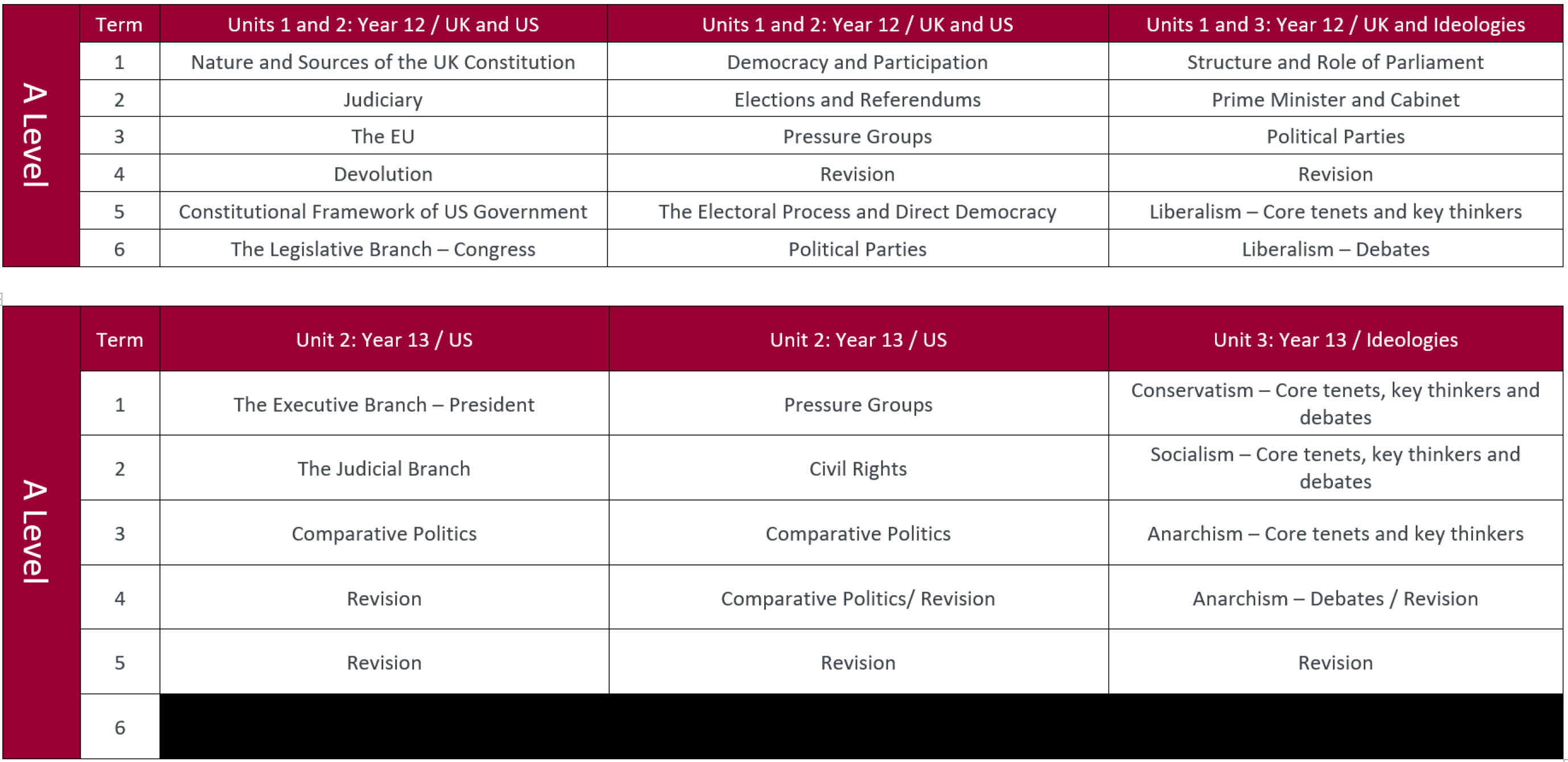Politics
BackHead of Department: Mr J Pratt
Teachers: Mr A Hammond, Mr J Stuart
Our intention is to promote engagement with, and awareness of, the institutions, processes and ideas that shape life in our own democracy, and that of the hugely influential United States. These are times of turbulent change in our society and for democracy to function effectively it is vital that schools educate students to enable them to navigate their way through such times as informed citizens. Those who study Politics should be able to evaluate the merits of different ideological approaches to the direction society should be heading, how this translates into political aggregation and policy formulation, and how institutions and systems mediate competing demands and channel political inputs from parties and pressure groups into policy outcomes and implementation. Pupils should be made aware of the influence of culture and historical context on politics and to compare the strengths and weaknesses of different political systems and approaches.
Beyond preparing students for further study in subjects such as Politics, History and International Relations, the course should create more active, informed citizens with an ability to play their part in shaping our democracy as responsible and reasoning actors. [Updated 2025/26]
Co-curricular activities
- Trips to Parliament
- Model United Nations General Assembly (MUNGA) – previous trip to Washington for NAIMUN
- Debating Society – meets each week
Any man who says they are not interested in politics is
like a drowning man who insists he is not interested in water.Mahatma Gandhi
A Level: Years 12 and 13
Course content
The specification requires in-depth study of UK and US government and politics. Comparisons across the two political systems are required in the topic entitled Comparative Politics. Students will be required to identify parallels, connections, similarities and differences between aspects of politics. This will ensure that students develop a critical awareness of the changing nature of politics and the relationships between political ideas, political institutions and political processes.
Examination
- Paper 1: Government and politics of the UK (2 hours: 33.3%)
- Paper 2: Government and politics of the USA; Comparative politics (2 hours: 33.3%)
- Paper 3: Political ideas (2 hours: 33.3%)
Exam board: AQA
Careers Education
• The department subscribes to Politics Review magazine, which has articles students can use for their further reading and for referencing in exams.
• We provide extensive further reading lists, listening lists for podcasts and watch lists for news programmes and political documentaries.
• We attend political conference where key political figures including government ministers, MPs and political journalists discuss their work and careers.
• We discuss a range of roles relevant to the course e.g. MPs, civil servants, lawyers and judges, lobbyists, public relations, journalism and media, NGOs, union delegates, special advisors, think tanks and their links to other institutions such as universities. We consider university paths into several of these: party membership, civil service fast track, internships and voluntary work etc. We encourage engagement with political parties and local political engagement.

